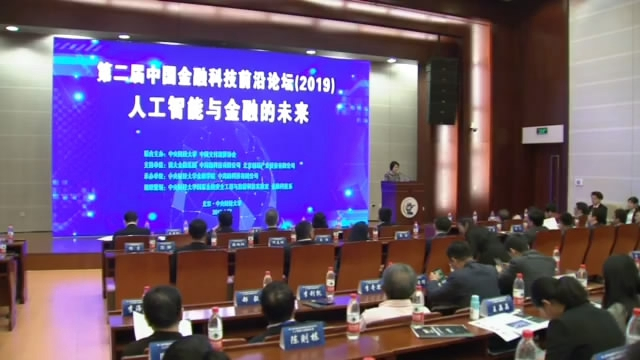
Money Stories
18:25, 29-Apr-2019
China gears up for fintech development
Guan Xin
02:23

A new wave of technology is reshaping the finance industry. Participants at the Future of Fintech Forum in China, jointly held by the Central University of Finance and Economics (CUFE) and the Payment and Clearing Association of China, believe that artificial intelligence (AI) is transforming the way we finance.
"Essentially speaking, finance is an industry with calculation, data, and risk control. Artificial intelligence is very helpful in the improvement of calculation capacity, upgrade of algorithm, and the use of big data. Through the convergence and innovation in these aspects, AI can go a long way to improve the efficiency of the finance industry," said Li Jianjun, dean for School of Finance at CUFE.
The CUFE is the first Chinese university to launch a Fintech department, aiming to address the lack of talent to satisfy the country's fintech ambitions.
"We focus on areas including the convergence of fintech and inclusive finance, as well as regulatory technology and finance security," the dean said, adding that "in graduate education, we focus on big data application, intelligent investment consultant, smart banking, etc."

CGTN Photo
CGTN Photo
Industry insiders believe it is an inevitable trend to step up the use of technology in the finance sector to increase their competitiveness.
A new report from consulting firm Accenture shows that Chinese firms led global fintech investment in 2018, with strong demand for technology innovation in the sector. The country saw its deal value increase nearly nine-fold to 25.5 billion U.S. dollars, accounting for nearly half of the global total.
To better foster innovation, government supervision should also use technology to increase accuracy and efficiency.
"We should use technology to supervise the industry, rather than rely on various campaigns. The latter can be effective in the short run, but may hurt innovation. Using technology, we can lower the cost for regulators and reduce possible government failures," said Ouyang Rihui, the assistant dean at China Center for Internet Economy Research.

SITEMAP
Copyright © 2018 CGTN. Beijing ICP prepared NO.16065310-3
Copyright © 2018 CGTN. Beijing ICP prepared NO.16065310-3